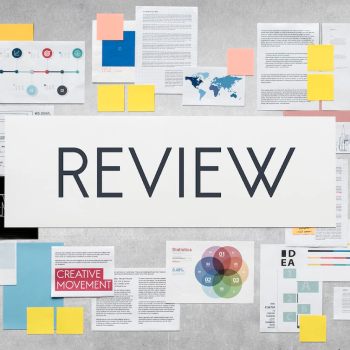


The most significant benefit of salary benchmarking is that it helps in removing unequal pay disparities. Every employee gets a fair remuneration, which is equally competitive as well.
In companies where compensation benchmarking has not been introduced yet, the process will even allow salary increases for several positions.

Since the entire process is about defeating the competition and retaining more employees for the organization, there will always be attempts to woo employees with bonuses and incentives.
Therefore, periodic increments in salaries, alongside added benefits, can be expected in organizations in which regular compensation benchmarking is performed.

Although compensation benchmarking is strictly related to salaries’ facts and figures, it also has influenced the work profile that cannot be ignored.
When data about what other organizations offer to their employees who work for the same number of hours as you do becomes available, you get to negotiate your duty hours accordingly.
Therefore, compensation benchmarking promotes not only a fair salary offering but also a peaceful work environment.

When employees decide to change organizations, looking at the salary benchmarking reports helps them determine the salary range in the new company.
This way, the applicant can identify the growth prospects and how far he could go when the monetary benefits are concerned.
Hence, salary benchmarking helps employees in making an informed decision before changing jobs.

Salary benchmarking fosters transparency in compensation practices. Employees can have a better understanding of how their salaries compare to others in similar roles or industries. This transparency promotes trust and confidence in the organization, as employees have visibility into the criteria used to determine their compensation.

When employees feel that they are fairly compensated based on market standards, they are more likely to be satisfied with their jobs and remain committed to the organization. Salary benchmarking helps prevent situations where employees may feel undervalued or seek opportunities elsewhere for better compensation. By ensuring competitive salaries, organizations can enhance employee retention and create a positive work environment.


No matter how big the organization is, hiring and retaining the right person for the right role is equally tricky everywhere.
So, tackling pay disparities, which is the most common cause for employee migration, should be dealt with using reasonable promptness.Therefore, comparing and then changing the salaries offered for every position concerning the average market rate is essential to keep the competitors at bay when talent retention is your priority.

Compensation benchmarking works equally well the other way round as well. When you get hold of figures related to market rates for a particular position, you can straightaway tell your applicants how the package that you propose is wholly justified.
Moreover, your recruitment drives will also be planned similarly, actively hiring for roles where average market packages are well within your budget or even lesser than that.

Making changes according to the data obtained with salary benchmarking will help in cultivating trust amongst the employees.
Employees would realize how the organization is taking care of their remuneration and providing necessary increments to offer a fair salary for every position. Ultimately, these steps help strengthen human relations, and the loyalty of every employee towards the organization gets enhanced.

Salary benchmarking enables employers to stay updated on market trends and industry standards. Thus, employers can ensure that their offerings are competitive and aligned with their competitors. This helps attract high-quality candidates.

Salary benchmarking provides employers with valuable data and insights to make informed decisions regarding compensation strategies. Employers can use this information to align their compensation structures with industry standards.

Salary benchmarking helps employers ensure compliance with legal and regulatory requirements related to compensation like assessing equal pay laws, and other relevant regulations. By conducting regular salary benchmarking exercises, employers can proactively address any compliance issues and mitigate potential risks.

Offering competitive salaries based on salary benchmarking data can significantly enhance an employer's ability to attract top talent. Salary benchmarking helps employers position themselves as attractive employers and stand out in the talent market.


The first step of compensation benchmarking is to identify the attributes of every position. This refers to the duties that the organization wishes to give to a person hired for the job.
Once these duties have been identified, you will have to individually search for the salary data concerning each of these work attributes.For instance, if data analysis is one task that you want a research associate to perform, you will search for the market rate for a data analyst position first. For this, you can use HR-reported average survey data.

In the above example, according to the time you want the employee to devote to data analysis, you will figure out the percentage of the salary that should be finalized according to market research.
A similar approach is used for other job attributes, following which a balanced final pay package is decided.
Performing salary benchmarking is not easy for internal departments. One requires resources and analysts to give meaningful reports. Therefore, several companies prefer hiring consultants who complete compensation benchmarking on their behalf.
Ma Foi is a business consulting agency that supports the HR, Legal and Compliance processes in companies from all industries. With over 20 years of experience and helping more than 400 clients, Ma Foi is a trusted alternative to get industry-specific salary benchmarking results.

Gather relevant information about the job roles within your organization. This may include job descriptions, job titles, responsibilities, required qualifications, experience levels, and any existing salary data.

Access external sources of market data, such as salary surveys, industry reports, or compensation databases. These sources provide information on prevailing market rates and compensation practices for similar job roles.

Analyze the collected data to identify any gaps or discrepancies between your internal salary structures and the market data. Look for differences in salary ranges, compensation packages, or benefits offered for similar positions in the market.

Based on the analysis, consider making adjustments to your organization's compensation strategies. This could involve revising salary ranges, offering additional benefits, or making changes to incentive programs to align them with market standards and attract or retain top talent.

Share the findings of the salary benchmarking process with relevant stakeholders, such as HR professionals, managers, and executives. Transparent communication helps build trust and understanding of the organization's compensation practices.

Salary benchmarking is an ongoing process, as market conditions and compensation trends change over time. It is essential to regularly review and update your salary benchmarking data to ensure that your organization remains competitive in the market.

The objectives of the benchmarking process should be clear from the start. Every member of relevant committees should be aware of these objectives to take the expected pay decisions smoothly.
Senior executives are valuable assets who drive crucial management decisions. Thus, conduct market benchmarking for these posts annually to ensure that your valued executives do not feel unsatisfied at any point with their pay.
The summary of the data should be based on the middle 50% of the samples obtained. This is important because such reports give a better idea of how narrow or wide the salary ranges for a position can be.

Determine what specific job roles or positions you want to benchmark and the purpose of the benchmarking process, whether it's to attract and retain talent, ensure fair compensation, or comply with industry standards.

Gather data from reputable and reliable sources to ensure accuracy and credibility. Utilize industry-specific salary surveys, and compensation databases, or consult with professional associations or specialized salary benchmarking firms. Verify the relevance of the data to your organization's industry, location, and job roles.

Ensure that the data you collect for benchmarking is comparable to your internal job roles. Pay attention to factors such as job titles, job descriptions, responsibilities, qualifications, and experience levels.

Consider segmenting the market data based on relevant factors such as geographic location, industry, company size, or other relevant demographics. This allows for more precise comparisons, as compensation levels can vary based on these factors.

Don't focus solely on base salary. Consider the complete compensation package, including benefits, incentives, bonuses, and other perks. Analyzing the total compensation offered by your organization and comparing it to market standards provides a comprehensive view of your competitiveness.